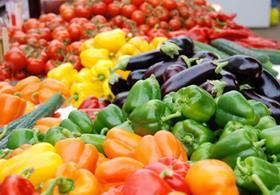
Syngenta and Rijk Zwaan have announced the signing of an extensive cross-licensing agreement on native traits in vegetables.
Under the agreement, the parties provide each other the right to use biological material that falls under the scope of their patents for both breeding and commercial purposes in vegetables.
The agreement thus increases the possibilities for both companies to develop new and improved vegetable varieties by making use of each other’s innovations, establishing a full breeders’ exemption between the parties for such patents as exists under the worldwide plant breeders’ right system.
According to the two companies, the signing of this agreement is the direct result of dialogues that led to the foundation of the International Licensing Platform Vegetable (ILP), of which both companies were founding members.
The ILP makes vegetable related innovations widely available to breeders by an open access approach that offers members access to patents on native traits under fair and reasonable conditions. It currently has 12 members and is open for new seed companies and public research institutes to join.
“Securing continuous access to breeding material and novel traits is one of our main priorities,' said David Morgan, head of vegetable seeds for Syngenta. 'It forms the foundation from which to create novel, innovative varieties with strong benefits for both growers and consumers. This license deal with Rijk Zwaan brings together two innovation pipelines to allow faster delivery of novel vegetable varieties to the market.
'Syngenta believes that beneficial traits and technologies should be accessible to plant breeders around the world,' he added. 'In this respect the company has also launched its own e-licensing platform. This allows for plant breeders, companies and public research institutes around the globe to access the company’s portfolio of patented native traits present in commercial vegetable varieties to develop the diverse crop varieties farmers require and consumers enjoy.”
Ben Tax, director of Rijk Zwaan, said: “This agreement enables us to use each other's plant varieties, also in case the biological material falls under the scope of a patent, for breeding purposes and then to market the newly developed varieties. This is a clear win-win deal and one that is excellent for growers and consumers. Open innovation in breeding is essential for the global food supply.”



